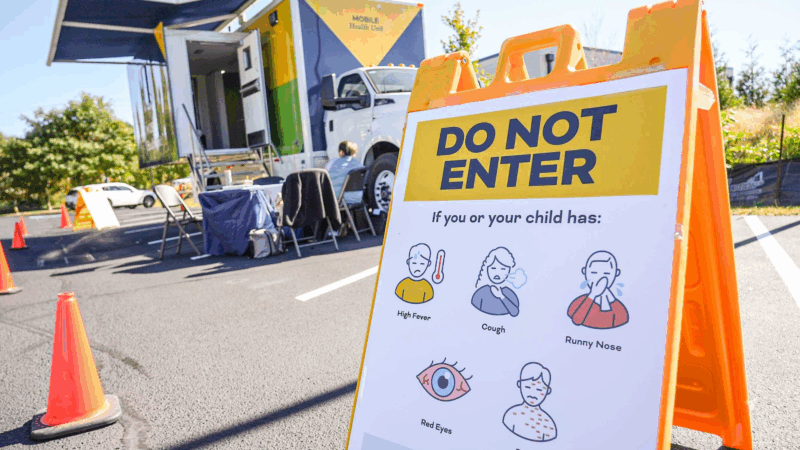Alabama prisoners refusing to work in 2nd day of protest
MONTGOMERY, Ala — Alabama inmates were in their second day of a work strike Tuesday, refusing to labor in prison kitchens, laundries and factories to protest conditions in the state’s overcrowded, understaffed lock-ups.
Prisoners including those who provide food, laundry and janitorial services refused to show up for work at major state prisons, leaving staff scrambling to keep the facilities running.
“They are running a slaughterhouse,” Diyawn Caldwell, founder of the advocacy group Both Sides of the Wall, said of Alabama’s prison system, which the U.S. Department of Justice has called one of the most violent and understaffed in the country. Caldwell’s husband is incarcerated at a state prison.
The Department of Justice has an ongoing civil lawsuit against Alabama over conditions in its prisons, saying the state is failing to protect male inmates from inmate-on-inmate violence and excessive force at the hands of prison staff.
The 2020 lawsuit alleges that conditions in the prison system are so poor that they violate the ban on cruel and unusual punishment and that state officials are “deliberately indifferent” to the problems. Alabama officials have acknowledged problems in the prison system but dispute the Justice Department’s accusations.
The Alabama Department of Corrections confirmed Tuesday that the work stoppage was “still active in most male facilities.” However, the department maintained that “facilities are operational and there have been no disruption of critical services, which include meals.”
Family members of several inmates, however, said prisons were not distributing three daily meals and prisoners were given paper sacks containing corndogs or sandwiches.
Inmate labor provides a vital role in keeping prisons functioning.
“HOW LONG CAN 25 PEOPLE RUN A PRISON WITH 1000, 1800, 2300, etc. PRISONERS?” inmate organizers of the work stoppage wrote in a press statement about the strike.
Caldwell said organizers are hoping to persuade federal officials to go ahead intervene in the prison system. She said they are also seeking a number of changes related to release and sentencing such as repealing the Habitual Felony Offender Act, establishing uniform criteria for parole that would guarantee release, streamlining the review process for medical furloughs and reviewing elderly incarcerated individuals for immediate release.
Supporters, including family members, delivered the demands to the prison system headquarters after a protest on Monday.
A spokesperson for Gov. Kay Ivey told reporters that the demands were unreasonable and thanked prison staff for maintaining facilities.
“It is also important for these protestors to understand that a lot of their demands would require legislation, not unilateral action. Some of these demands suggest that criminals like murderers and serial child sex offenders can walk the streets, and I can tell you that will never happen in the state of Alabama where we will always prioritize the safety of our citizens,” Ivey’s office told news outlets.
The strike, while not directly related, comes after photos of an emaciated inmate at Alabama‘s Elmore Correctional Facility went viral. Kastellio Vaughan’s sister had posted the photos to Facebook with the message, “Get Help.”
The disturbing image prompted outrage and allegation of medical neglect. The prison system said that Vaughan had refused medical assessment and left the hospital following surgery against medical advice
“This is horrific,” Ben Crump, an attorney representing Vaughan said in a statement. “Let’s be clear, the State of Alabama has tried to deflect any action or responsibility for Mr. Vaughan’s condition at every turn.
The prison system issued a statement Tuesday saying that Vaughn had surgery for an obstructed bowel in August and was hospitalized in September for a complication. Both times he was discharged against medical advice, the prison system said, and has since refused medical assessment and medical treatment.
“The ADOC offers medical assessment and treatment to all inmates but does not force them to accept that care,” the prison system said.
To learn more about Alabama’s prison crisis listen to WBHM’s podcast Deliberate Indifference.
Gulf South food banks look back on a challenging year as another shutdown looms
Federal funding cuts and a 43-day government shutdown made 2025 a chaotic year for Gulf South food banks. For many, the challenges provide a road map for 2026.
Measles is spreading fast in S.C. Here’s what it says about vaccine exemptions
More than 550 people have contracted measles in Spartanburg County, S.C., in a fast-growing outbreak. Like a majority of U.S. counties, nonmedical exemptions to school vaccination are also rising.
It took 75 governors to elect a woman. Spanberger will soon be at Virginia’s helm
Abigail Spanberger, a former CIA officer and three-term congresswoman, is breaking long-held traditions on inauguration day. She says she wants her swearing-in to showcase the state's modern vibrancy.
For those with addiction, going into and coming out of prison can be a minefield.
Many jails and prisons around the country don't provide medication treatment for opioid use disorder. Studies show that medication makes recovery more likely and reduces the risk of overdose death.
Trump struck deals with 16 drug companies. But they’re still raising prices this year
All 16 drug companies that inked deals with the Trump administration over the past few months still raised some of their prices for 2026.
This hospice has a bold new mission: saving lives
A hospice in Uganda asked itself: Can we do more than ease the pain of dying? Can we actually prevent deaths from cervical and breast cancer?







